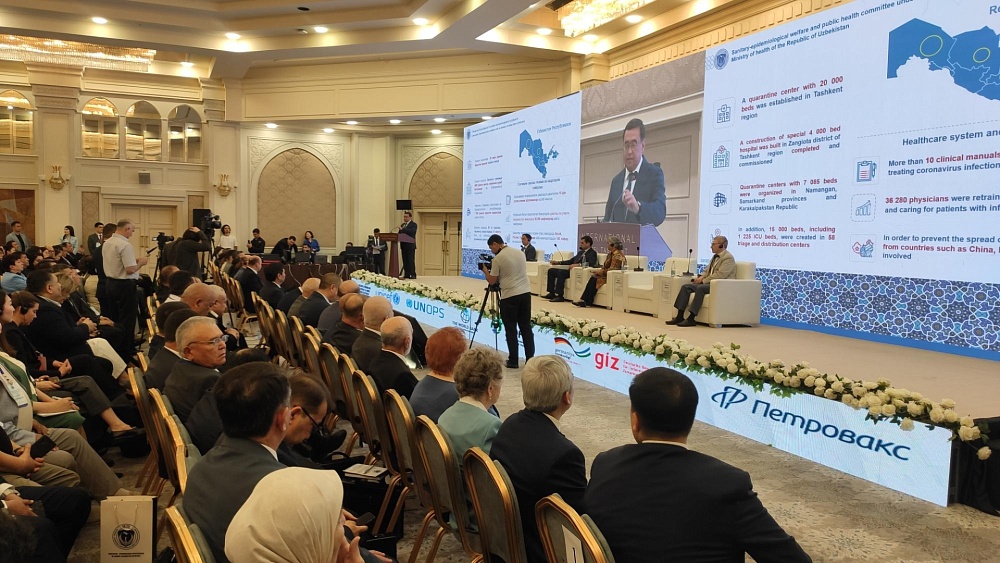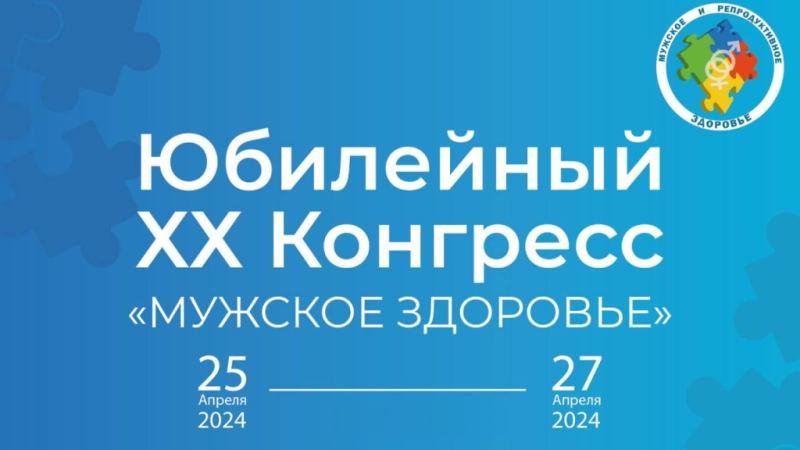
World Immunization Week-related conferences in Ekaterinburg and Tashkent

The annual World Immunization Week started on April 24 with scientific and practical conferences on infectious diseases in Ekaterinburg and Tashkent.
The events aimed to promote the importance of immunoprevention to protect people from vaccine-preventable infections.
Galina Ignatova, Dr. habil. med., Professor, Chief Pulmonologist of Urals Federal District, stressed the importance of getting vaccinated against pneumococcal infection.
Pneumococcal infection causes a number of serious conditions, primarily pneumococcal pneumonia. Statistics says that in the year of 2019 almost 14 million deaths were infection-related and about 8 million were caused by bacterial pathogens globally[1]. In 41% of cases pneumococcus is the reason for community-acquired pneumonia. Young children, people over 65 years of age, people with underlying chronic health conditions, for example, asthma, diabetes mellitus, HIV infection, etc. are at risk.
Vaccination is the most effective way to affect morbidity and mortality from pneumococcal infection. In a 10-year (2012-2022) analysis of pneumococcal vaccination efficacy in patients with chronic obstructive pulmonary disease, survival in the Prevenar®13 vaccine group was 20% higher (47% vs. 27%, respectively) than in the control group. In addition, patients in the control group reported dyspnea progressed by 12% by 2022, which was not seen in the Prevenar®13 group[2].
Vladimir Antonov, Dr. habil. med., Professor, Chief Pulmonologist of Chelyabinsk Region, said that 3-5 million people suffer from influenza every year, with epidemics of seasonal influenza causing 291 thousand to 645 thousand deaths. The disease ranks 4th in EU countries as one of the most frequently encountered infections in terms of disability and premature mortality[3].
Dr. Antonov explained that during flu epidemics the risk of death among patients with chronic lung diseases increases by 120 times and by more than 400 times when a cardiovascular pathology presents in conjunction with respiratory diseases[4].
The meta-analysis exploring the correlation between flu vaccination and the risk and severity of COVID-19 has clearly revealed that quadrivalent vaccines used for flu prevention can reduce the risk of COVID-19 infection by 26%, and the adjuvant in the vaccine creates a more pronounced cellular immunity compared to other vaccines[5].
Dr. Antonov V. also mentioned that a one-stage vaccination against both pneumococcal infection and influenza could be used. Combination vaccination has a proven clinical effect[6] and can significantly reduce pneumonia incidence. A simultaneous administration of pneumococcal and influenza vaccines can lower the severity of dyspnea and stabilize the main functional indices of the respiratory system compared to monovaccination with a pneumococcal vaccine alone.
Combined immunoprevention with pneumococcal and influenza vaccines can reduce the risk of adverse effects in COPD and increase the survival rates[7].
In his speech at the conference in Tashkent (Uzbekistan), Dmitry Lioznov, Dr. habil. med., Professor, Director of Research Institute of Influenza by Smorodintsev, noted that vaccination prevented approximately 7.5 million cases of influenza, 105 thousand hospitalizations and 6.3 thousand deaths during the 2019-2022 flu season[8]. Globally available vaccines for seasonal influenza can significantly reduce morbidity and mortality.
1 Global mortality associated with 33 bacterial pathogens in 2019: a systematic analysis for the Global Burden of Disease Study 2019. The Lancet. 21 November 2022. https://doi.org/10.1016/S0140-6736(22)02185-7
2 Ignatova G.L., Avdeev S.N., Antonov V.N., Blinova E.V. Ten-year analysis of the effectiveness of vaccination against pneumococcal infection in patients with chronic obstructive lung disease. Pulmonology. 2023;33(6):750-758. https://doi.org/10.18093/0869-0189-2023-33-6-750-758
3 https://www.who.int/publications/i/item/9789240051164
4 M.P. Kostinov, О.А. Svitich, E.V. Markelova. Potent COVID-19 immunoprophylaxis in groups at high risk of infection. Temporary manual for physicians. - М.: MDV Group, 2020. - 60 p.
5 DOI: https://doi.org/10.1016/j.amepre.2022.02.008
6 Methodological Guidelines “Immunization in Adults”, Ministry of Health of the Russian Federation 2020, O.M. Drapkina
7 Methodological Guidelines “Immunization in Adults”, Ministry of Health of the Russian Federation 2020, O.M. Drapkina, N.I. Briko
8 https://nfid.org/infectious-diseases/influenza-flu/
Experts discuss reproductive health protection at the jubilee Men's Health XX congress


